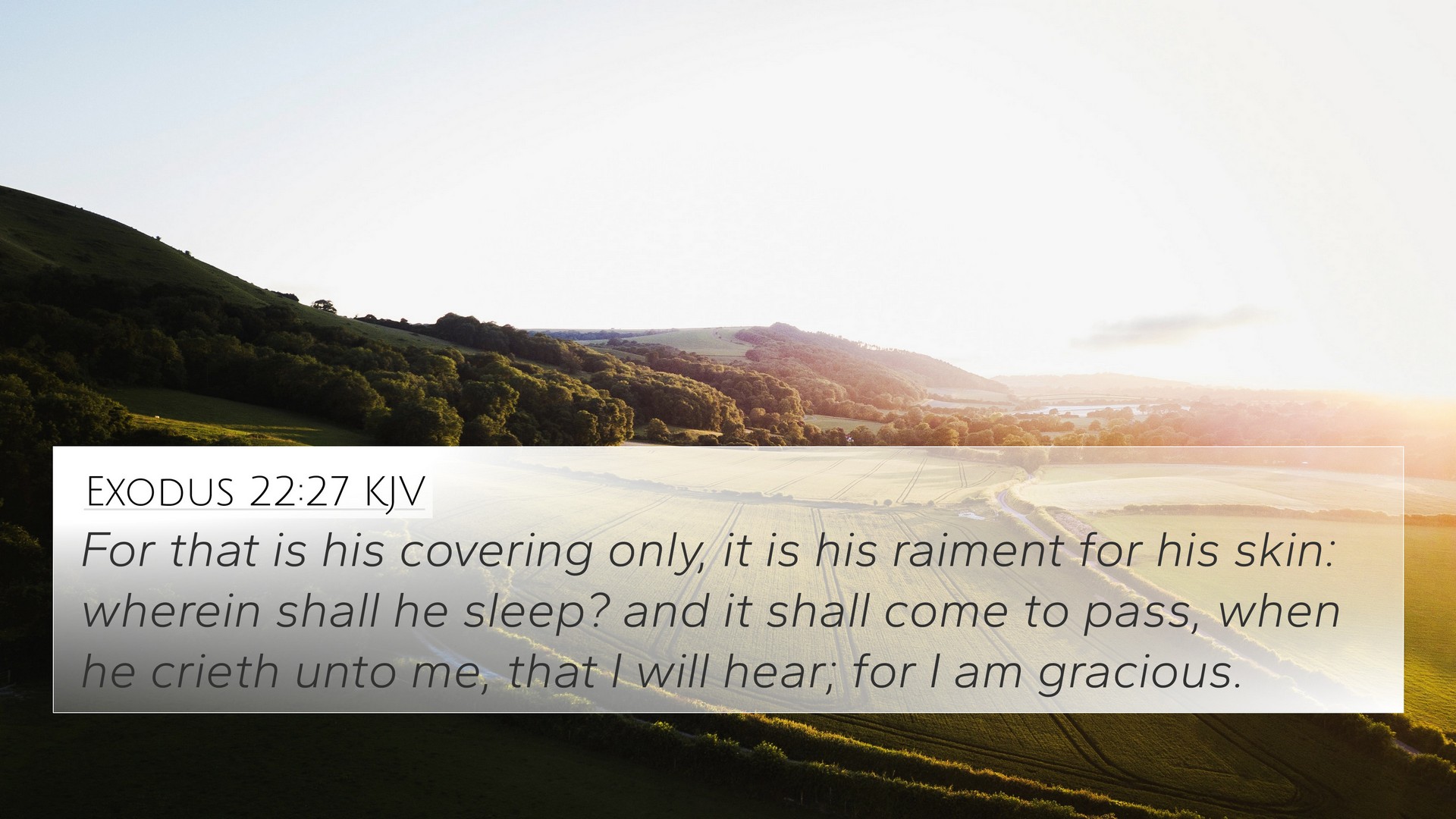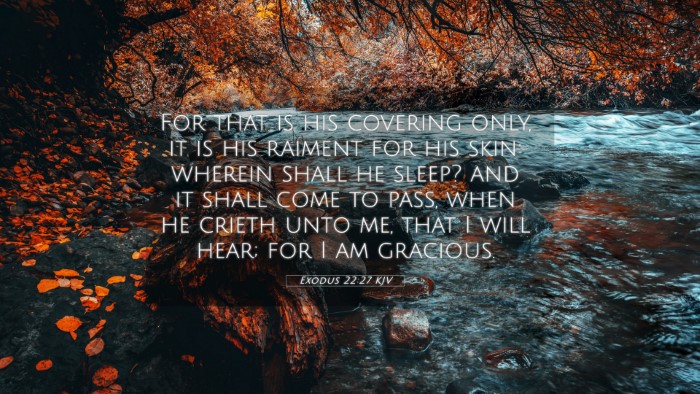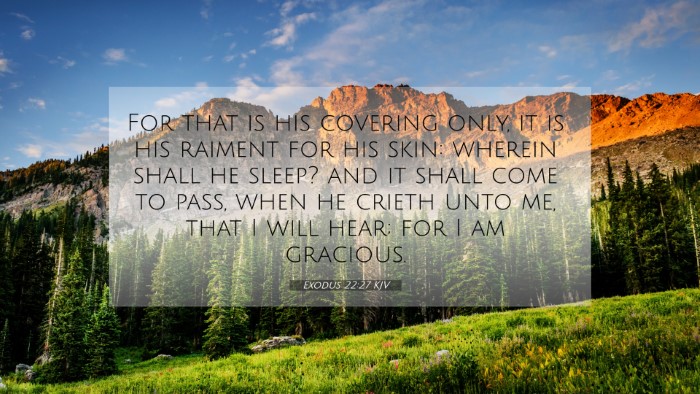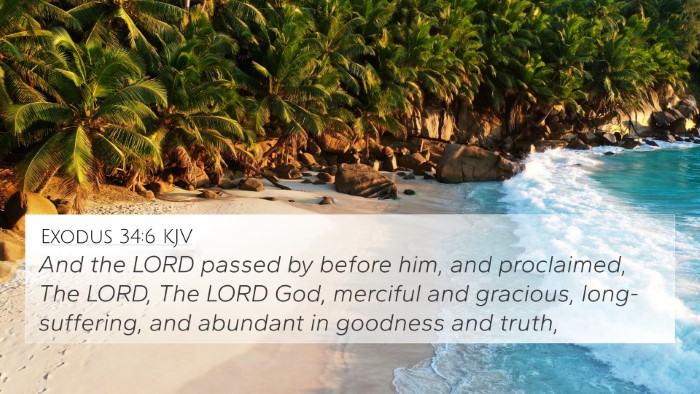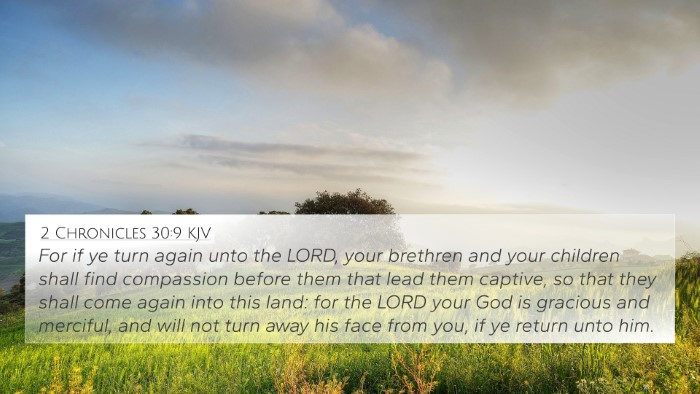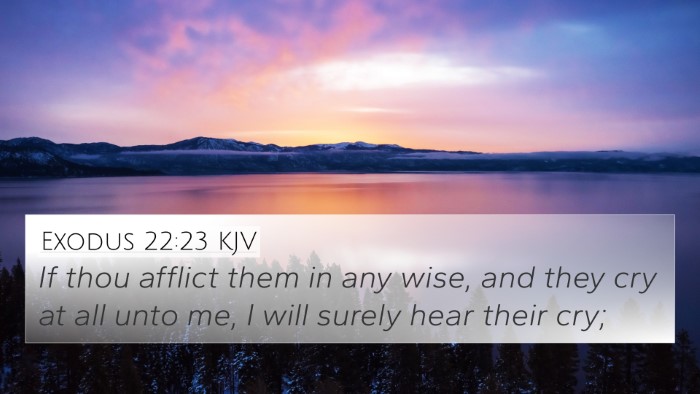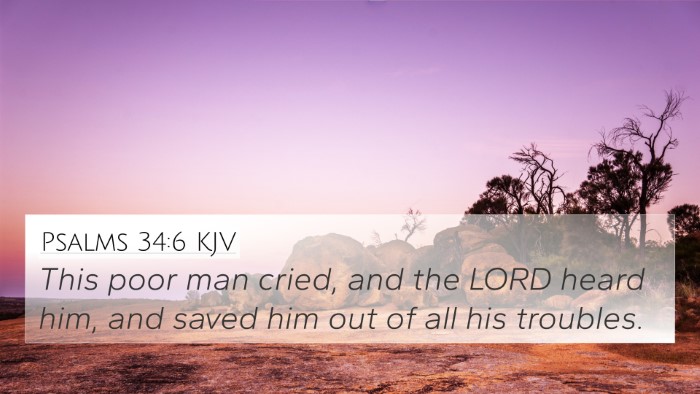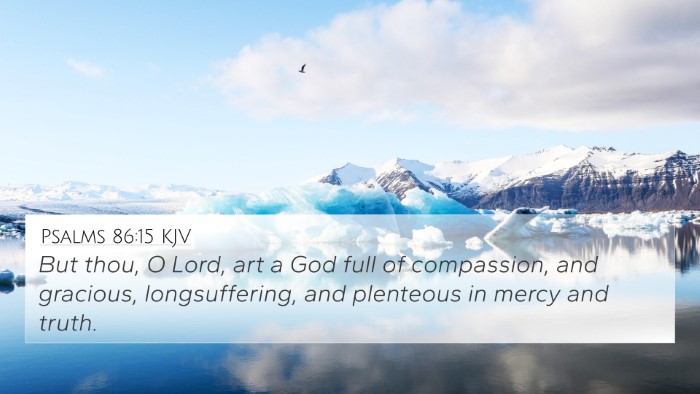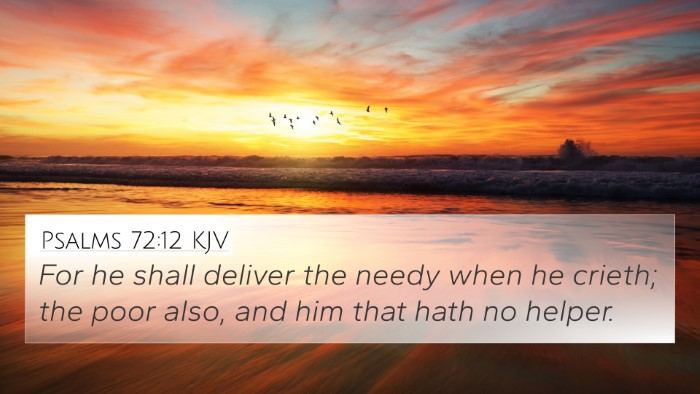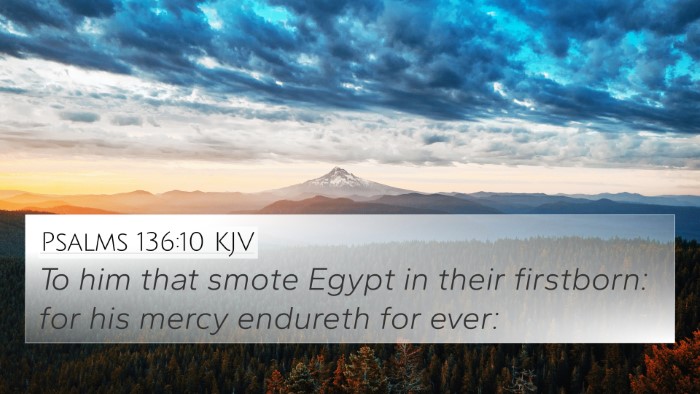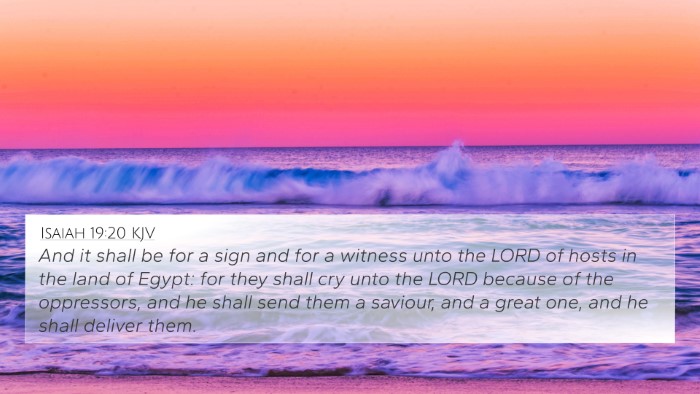Understanding Exodus 22:27
Exodus 22:27 states: "For that is his covering only, it is his raiment for his skin: wherein shall he sleep? And it shall come to pass, when he crieth unto me, that I will hear; for I am gracious." This verse highlights the importance of justice, mercy, and empathy in the treatment of others, particularly with regard to the vulnerable in society.
Summary of Commentary Insights
The insights from Matthew Henry, Albert Barnes, and Adam Clarke collectively provide a deeper understanding of this passage.
Matthew Henry's Commentary
Matthew Henry emphasizes the context of social justice, reflecting on the treatment of the poor and the significance of their basic needs. His commentary notes:
- Importance of Basic Needs: The verse illustrates God's concern for the basic necessities of His people, especially the poor, suggesting that the covering (cloak) serves a fundamental role in their daily lives and comforts.
- Divine Compassion: Henry highlights God's gracious nature, indicating that even when people are in distress, God hears their cries and responds with mercy.
Albert Barnes' Commentary
Albert Barnes expands on the idea of grace and the implications of God’s attentiveness to those who are disadvantaged:
- Gracious Hearing: Barnes notes that God’s response to the cries of the oppressed is a testament to His character as a God of mercy.
- Social Responsibility: He argues that the intention behind these laws is the cultivation of compassion and empathy within the community, encouraging individuals to look after one another.
Adam Clarke's Commentary
Adam Clarke approaches the text from a more practical perspective:
- Restorative Justice: Clarke identifies the notion of restoring a person’s dignity and comforts through proper treatment, further elaborating on the significance of not withholding what is necessary for life and rest.
- Link to Divine Favor: He also underscores that God’s favor often correlates with humane actions towards others, thereby urging believers to heed the needs of the less fortunate.
Bible Verse Cross-References
This verse connects to numerous other scriptures, enhancing its themes of justice, mercy, and compassion:
- Deuteronomy 24:12-13: Discusses the importance of returning a poor person’s pledge by sunset, emphasizing empathy.
- Luke 6:36: "Be merciful, even as your Father is merciful," reflecting the divine call to compassion.
- Matthew 5:7: "Blessed are the merciful, for they shall receive mercy," highlighting the reciprocal nature of mercy.
- James 2:15-16: Addresses faith without works, stressing the need to care for those in physical distress.
- Psalms 72:12-14: Celebrates the righteous King who delivers the needy when they cry.
- Isaiah 58:7: Calls for sharing bread with the hungry and bringing the poor to one’s house.
- Proverbs 21:13: Warns against shutting one’s ears to the cries of the poor, reinforcing accountability.
- 1 John 3:17: Questions how one can close their heart to a brother in need, reinforcing the call to action in compassion.
- Galatians 6:2: "Bear one another's burdens, and so fulfill the law of Christ," echoing the Biblical mandate to support one another.
- Exodus 23:9: Cautions against oppressing the stranger, invoking a shared experience of oppression.
Conclusion
Exodus 22:27 serves as a foundational teaching in understanding God’s desire for justice, mercy, and compassion within human relationships. The collective insights from various commentaries not only illuminate its meaning but also encourage believers to engage in acts of kindness and justice inspired by divine principles.
Thematic Bible Verse Connections
Through cross-referencing Biblical texts and examining thematic connections, one can draw deeper insights into God's expectations for humanity regarding justice and compassion.
